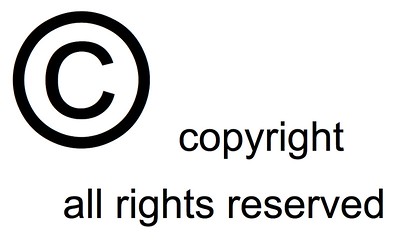Like all higher education institutions, WCC has a policy regarding plagiarism. In fact, the Board has enshrined the policy in WCC Board Policy 4095 Student Rights, Responsibilities and Conduct Code Policy.
Student Rights, Responsibilities, and Conduct Code Policy
“The College considers the behavior described in the following sub-sections as inappropriate for the College community and in opposition to the core values set forth in this document. These expectations and rules apply to all persons and students at the College. The College encourages community members to report to College officials all incidents that involve the following actions. Any student found to have committed or to have attempted to commit the following misconduct is subject to sanctions.
Integrity: College students exemplify honesty, honor and a respect for the truth in all of their dealings. Behavior that violates this value includes, but is not limited to:
- Falsification. Knowingly furnishing or possessing false, falsified or forged materials, documents, accounts, records, identification or financial instruments.
- Academic Dishonesty. Any act of academic dishonesty including:
- Collusion is defined as the unauthorized collaboration with any other person in preparing work offered for individual credit.
- Fabrication is defined as intentionally falsifying or inventing any information or citation on any academic exercise.
- Cheating is defined as intentionally using or attempting to use unauthorized materials, information, or study aids in any academic exercise.
- Plagiarism is defined as the appropriation of any other person’s work and the unacknowledged incorporation of that work in one’s own work offered for credit.
- Unauthorized Access. Misuse of authorized access or unauthorized access to any College building (i.e. keys, cards, etc.) or unauthorized possession, duplication or use of means of access to any College building.
- Taking of Property/Theft. Intentional and unauthorized taking of the property of other students, staff, guests, or faculty while on campus or at College-sponsored functions.
- Stolen Property. Knowingly taking or maintaining possession of stolen property.
Regarding policies: no one likes them
I’m a writer. Occasionally, a client asks me to write a policy. I will confess that I do not find writing a policy either fun or interesting. In fact, creating policy is an exhausting mental exercise. But because I occasionally write policies, I take the opportunity to read policies.
Another confession: no one really likes reading policy either, except maybe me. And even I don’t like doing it, although I have a legitimate reason to.
Recently, WCC published its COVID-19 Preparedness and Response Plan. I’ll forgive you if you have not yet read it.
I was reading the plan, and as my son would say, there was something “sus” about it. (For the Generation Z-impaired, “sus” = “suspicious.”) On page 7 of the policy, the following phrase appears:
“Place visual cues such as floor decals, colored tape, or signs to indicate to customers where they should stand while waiting in line.”
Customers?
WCC has a lot of distinct groups: faculty members, students, staff, visitors, contractors, board members, vendors, donors, etc., … but no one at WCC applies the term “customers” to any of these constituencies.
Why did the writer use the word “customers?”
I copied a distinctive section of text from the policy into Google and then searched for it.
“These decisions, once approved, will be communicated through an employee’s respective supervisor, dean, or vice president. The need to reduce the number of people on campus (density) to meet social distancing requirements will continue for an indeterminate…”
The passage comes from Duke University’s Guide for Returning to the Workplace.
Plagiarism is a bad look in higher education
Several institutions have cribbed this guide from Duke, but at the end of the day the guide belongs to Duke. On Page 12 of WCC’s version of the guide, there is a list of references. Conspicuously absent from this list is a credit to Duke University for creating the bulk of the text of this guide. WCC should have sought permission from Duke to use the materials and provided an attribution.
It’s probably pretty sweet to have Duke University write your policies for you. (Especially if you’re not Duke University.) However, WCC foots the bill for a lot of highly paid executives. In theory, they should be able to put together an original, specific plan for re-opening the College.
Further, at a policy level, the WCC Board of Trustees does not tolerate plagiarism from its students. It should demand better of its executives, too.
Photo Credit: Mike Seyfang , via Flickr






